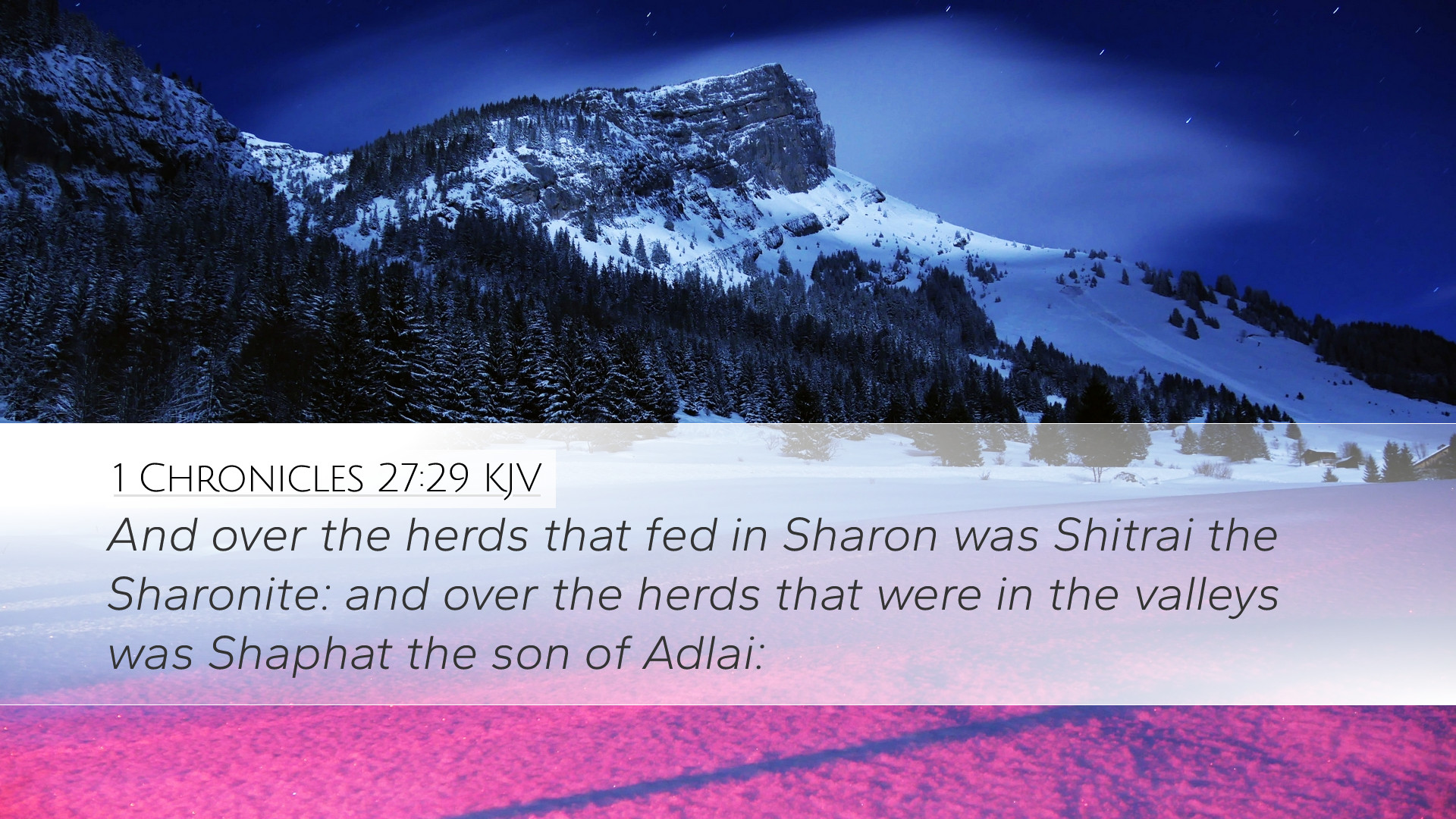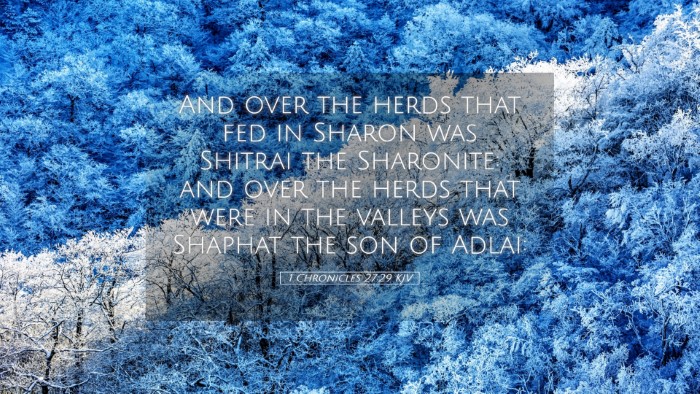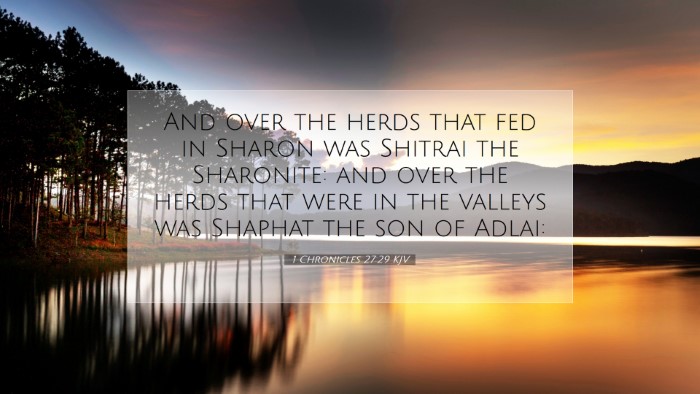1 Chronicles 27:29 Commentary
Biblical Text: "And over the herds that fed in Sharon was Shitrai the Sharonite: and over the herds that fed in the valleys was Obil the Ishmaelite."
Overview
This verse records the administrative details regarding the responsibilities assigned to specific individuals under King David's reign. The naming of Shitrai and Obil highlights the organization of the royal household and the management of resources, particularly livestock. This microcosm of governance reflects the broader themes of order, stewardship, and the importance of each role within the community.
Insights from Commentaries
Matthew Henry's Commentary
Matthew Henry emphasizes the significance of the herds and those appointed over them, illustrating God's providence in daily affairs. He notes that the management of herds was not a trivial task in ancient Israel; rather, it was crucial for the sustenance and economic stability of the kingdom. Henry points out that these overseers are indicative of a well-structured administration, each fulfilling distinct roles to ensure the smooth functioning of the kingdom.
-
Shitrai the Sharonite: Henry comments that Shitrai represents a specific locality and suggests that his role was integral to the welfare of the region, ensuring that the herds in Sharon were healthy and well-cared for.
-
Obil the Ishmaelite: The mention of an Ishmaelite overseeing the herds in the valleys signifies the inclusion of various groups within the Israelite society, reflecting a diverse yet unified community under David's leadership.
Albert Barnes' Notes on the Bible
Albert Barnes provides a detailed explanation of the significance of the names and their specific geographic locations. He further reflects on the implications of such administrative roles in terms of the broader governance of a nation. Barnes emphasizes that effective government requires the right people in the right positions to manage resources properly.
-
Geographical Implications: Barnes highlights that Sharon was a fertile region, known for its lush pastures, and underscores how important livestock management would be for economic prosperity.
-
Inclusiveness of the Administration: Highlighting Obil's Ishmaelite heritage, Barnes notes that David’s administration included individuals from various backgrounds, demonstrating the inclusivity of his government.
Adam Clarke's Commentary
Adam Clarke focuses on the symbolic aspects of the herd management outlined in this verse. He suggests that the herds represent God's bounty and provision, illustrating the importance of stewardship over what God has provided. Clarke delves into character analysis, hinting at the integrity required for such roles.
-
Heritage and Responsibility: Clarke interprets the roles of Shitrai and Obil as not merely administrative positions but as significant responsibilities that carry moral implications, where faithfulness in little will lead to greater trust in more significant matters.
-
Spiritual Righteousness: By referencing the herds, Clarke also draws parallels to the need for spiritual nourishment and care within Israel, seeing this verse as a reminder of God's faithfulness to provide for His people.
Theological Implications
This verse serves to illustrate the intricate and structured nature of biblical governance, which can be compared to the church's organizational structure today. The faithful management of resources reflects the broader theological theme of stewardship in Scripture. Furthermore, it reinforces the principle that every member of a community has a vital role to play in maintaining the health and prosperity of that community, ultimately under the sovereign oversight of God.
Practical Applications for Today
For modern pastors and theologians, 1 Chronicles 27:29 reminds us of the importance of organization within the church and our responsibilities toward stewardship.
- Role Assignment: Just as David appointed individuals based on their abilities and backgrounds, church leaders today must understand and leverage the gifts of their congregation for maximum effectiveness.
- Inclusivity: The mention of individuals from diverse backgrounds should encourage churches to be inclusive in their outreach and team building.
- Stewardship: As stewards of God’s creation, churches and individuals must prioritize care for God's resources, recognizing that effective stewardship leads to sustainability and growth.
- Community Responsibility: Each member's role within the church reflects how each person contributes to the health of the community; this encourages accountability and active participation in church life.
Concluding Thoughts
The administrative insight gained from 1 Chronicles 27:29 provides valuable lessons that transcend biblical history, offering guidance on leadership, stewardship, and community engagement that are applicable in contemporary settings. The careful organization and management of resources within the life of the Church serve as a testament to God's ongoing provision and the call to faithful service.


